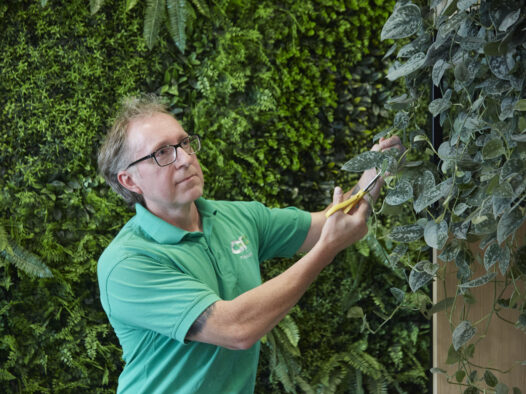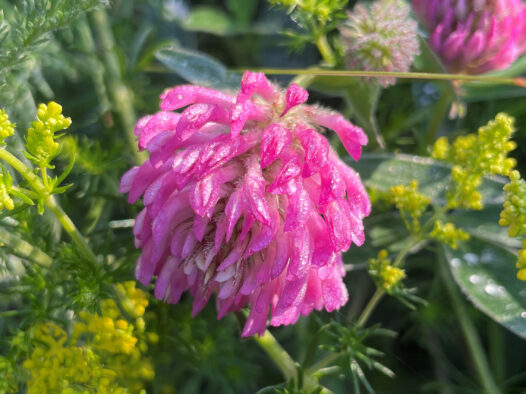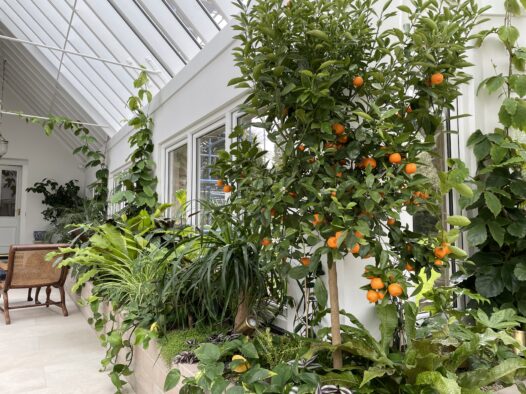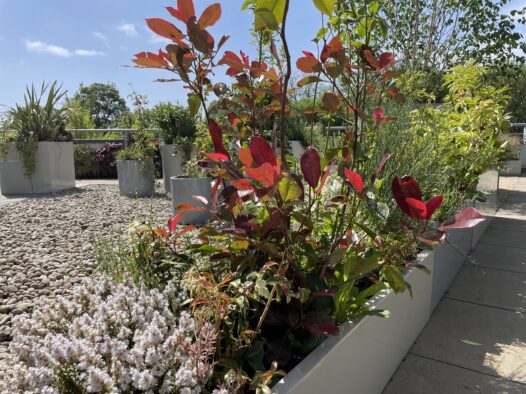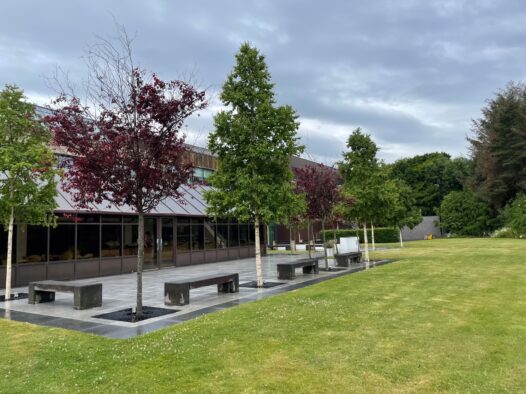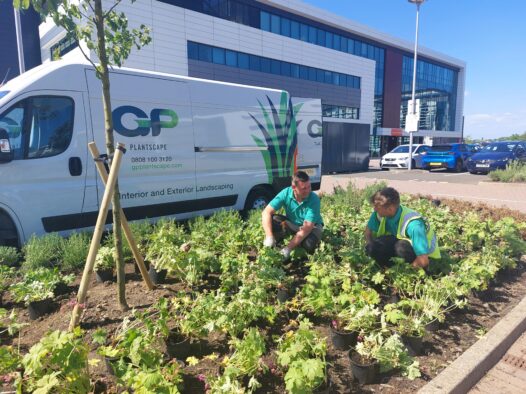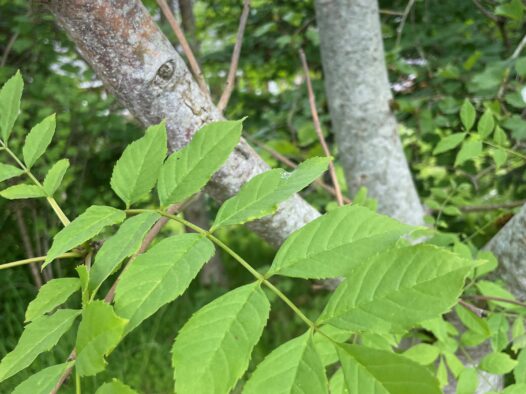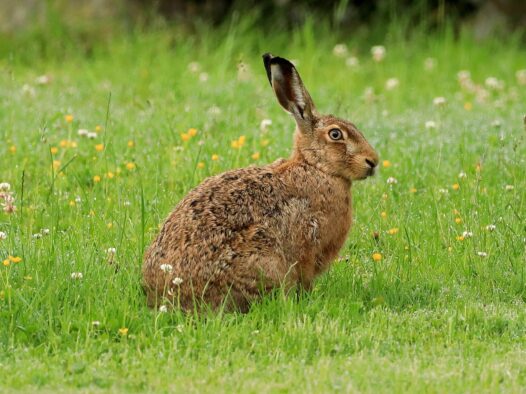Biodiversity is the variety of all life on earth and we humans depend on it to survive. The health of our planet and our future depends on biodiversity and we all have a part to play in protecting it, so in recent years it’s not surprising that businesses have turned their attention to the positive impact they can make on the planet’s natural systems.
Here are a few simple solutions which can be incorporated into your exterior grounds to increase the range of plant and animal life on your premises.
Weed control and maintenance
Using a deep mulch on shrub beds to supress weeds, hand weeding where required, can eliminate the need for chemical applications. A mulch of bark, woodchips or similar organic material provides home to a wide range of soil bacteria, insects, spiders, and worms. As the mulch slowly decomposes at the base layer it also contributes nutrients to the topsoil, benefiting the shrub planting. The biodiversity can be further enhanced by timing pruning to allow flowers to set seed where possible as this is a valuable source of food for smaller birds.
Wildflowers
Even a small area of wildflower can attract new varieties of insects and birds onto the grounds. By using a seed mix suitable to the soil conditions and containing both annual and perennial species, an annual crop of colourful flowers will provide breeding sites for bees, butterflies, insects, and spiders as well as for a wide range of songbirds.
New spaces
Create some new spaces for wildlife by strategically placing a mix of materials across the site. This could be in a fixture bed or any space which is not highly trafficked by vehicles or pedestrians. By simply including an area of logs and twigs, laid as though a fallen tree, will attract insects, birds, spiders and bugs as well as fungus and lichens and mosses. Other animals will also use this as a source of food.
Edibles
To encourage biodiversity and biodiverse thinking, why not provide planters for staff to grow edibles. Vegetables such as onions, beets, beans and spinach are all relatively easy to cultivate in tubs. A growing initiative would introduce even more plant variety and encourage a wider range of diversity on site, whilst also engaging and educating staff in the benefits of our impact on biodiversity.
Hedgehog houses
 Hedgehog numbers have been dramatically declining in the UK. Recent analysis by the British Hedgehog Preservation Society and the Peoples Trust for Endangered Species found populations to have fallen by up to 30% in urban areas and 50% in rural areas since the turn of the century. But there are ways you can help the spiny mammals to flourish on your property. Leaves accumulate underneath hedges, presenting the ideal spot for a hedgehog to hibernate, raise it’s young and forage for food. Planting a hedge, therefore doesn’t just act as a divider or shield off your exterior grounds from passing traffic, it can work towards increasing the biodiversity of your site and protecting these increasingly rare carnivores.
Hedgehog numbers have been dramatically declining in the UK. Recent analysis by the British Hedgehog Preservation Society and the Peoples Trust for Endangered Species found populations to have fallen by up to 30% in urban areas and 50% in rural areas since the turn of the century. But there are ways you can help the spiny mammals to flourish on your property. Leaves accumulate underneath hedges, presenting the ideal spot for a hedgehog to hibernate, raise it’s young and forage for food. Planting a hedge, therefore doesn’t just act as a divider or shield off your exterior grounds from passing traffic, it can work towards increasing the biodiversity of your site and protecting these increasingly rare carnivores.
Even tackling a few of these initiatives will make an impact on the biodiversity of your local community and the wider planet.
You can find out more here about our biodiversity services.
Latest News
and plant care tips.



